story by Sabrina Redlingshafer, alternative coverage by Katie Parkinson
[ezcol_2third id=”” class=”” style=””]
Seniors shuffled into math teacher Jo Weller’s Pre-Calculus class in a fit of shock, rage, and realization. Senior Fiona Madden sat down, pulled out her math notes and explained the situation to baffled classmates.
“Mr. Tonnies gave us the option to write an essay or turn in our phones to him for a 100 percent on an essay,” Madden explained. “…and he’s a really hard grader.”
Other students in Pre-Calculus were trying to fathom what they would do if offered to give up their phone for a guaranteed 100 percent.

Senior Camille Porterfield turned around and looked at senior Julia Hammond in distress. At the end of class, senior Porterfield walked over to Hammond, and asked Julia to text her boyfriend explaining the situation.
“I had texted [my boyfriend] Max briefly before I turned it in, so I had Julia Hammond text him about not having a phone to explain [the situation] more,” Porterfield said. “At first he was really confused and thought that meant he wasn’t allow to contact me for the two weeks, but then realized that we could Facebook message or find other ways [to communicate.]”
The experiment
“It was a social experiment,” Theology teacher Robert Tonnies explained.

Theology and media course teacher Robert Tonnies gave his junior and senior students the option to write an essay following one of multiple prompts, or turn their phone for two weeks as a social exercise correlating to subject matter.
“The content of the course is how technology affects our experience of life and with God, so we talk a lot about those things in class,” Tonnies said. “Smart phones came out six years ago. Since then, there has been more of a resistance to the idea that there could be negative effects of phones because they have an incredible value in people’s lives.”
Tonnies was interested in applying what students had learned in class to real life.
“This was a way to make all content of class come to life,” Tonnies said. “I decided to put it into action and say let’s live this out. It was a way to see how it’s effective by removing it.”
Tonnies talked to the counseling department to make sure there were no major concerns. He also had previously conducted this experiment at his former school, Academy of the Sacred Heart in New Orleans, La.
“I let all students know if they had concerns they could contact me,” Tonnies assured. “And I realized I was holding thousands of dollars worth of phones, so I put them in a safe place at school.”
Presenting the plan
During class time Nov. 7, Tonnies proposed the options to his two sections of Theology and Media classes.
“It’s always exciting to do this for the first time at a new school because of the initial shock and reactions,” Tonnies said.
Tonnies had the presentation of the experiment thought through.
“I went through all the essay prompts and then held out a basket and abruptly said ‘…OR you can give me your phone,” Tonnies explained.
The reaction was, indeed, shocking.
“One girl immediately pulled out her phone, turned it off and dropped it in the basket,” Tonnies said.

This girl was senior Abby Dearth.
“I texted my mom, ‘hey my phone is gone don’t text me ma’am,’ and I texted my boyfriend, ‘lol see you in two weeks,’ then threw my phone,” Dearth said. “I honestly wasn’t as concerned with this assignment as other people were because my phone is literally a flip phone. Mr. [Matthew] Bertalott even has a nicer phone than me, so there isn’t much I can do with it besides call and text, which takes forever.”
However, Dearth was a rare case. Other girls in the class did not react as smoothly.
“Then there was an uproar and it was chaotic for about twenty minutes,” Tonnies said. “I allowed students to ask questions and text or call their parents for permission.”

Senior Fiona Madden sat in the classroom surprised.
“He went through all essay prompts then really dramatically put out of bin and said ‘…Or you could give me your phones’,” Madden said. “We all started freaking out and asking him questions. I was really surprised and super conflicted.”
Even Dearth, who had no issue handing her phone in, was taken aback.
“I was shocked that he was actually gutsy enough to assign something like this, especially in his first semester at our school,” Dearth said.
The results
Tonnies teaches 36 total students split between two sections of his Theology and Media course. Twenty-four students initially turned in their phones, three came back to retrieve them.
Tonnies said he would try some sort of different social experiment next semester now that the school knows about his previous, but it would have the same meaning.
“One student came back after five minutes in a free because she said she was bored,” Tonnies explained. “Another came back after forty-five minutes to get it for work reasons, and another came in after three days.”
Commitment conflicts
Senior Fiona Madden dropped her phone in the bucket in class that day.
“I gave it up because I did not want to write the essay because he’s a very hard grader and I knew giving up my phone would raise my grade enough to get exempt from the final,” Madden said.
She walked across the quad to Pre-Calculus. Forty-five minutes later, Madden walked back across the Quad into Tonnies’ room, asking for her phone back.
“Sitting in my next class, I started to realize I could not give [my phone] up because of my nannying job,” Madden said. “They text me on a day-to-day basis letting me know when they need me to work and what they need me to do for nannying.”
Senior Camille Porterfield was also concerned about her nannying job, but did not reclaim her phone.
“My biggest concern about this assignment was my nannying job and weekends,” Porterfield said. “The people I nanny for always just text me, so I was freaking out if they were texting me or not. Also I had no idea what all my friends were doing on the weekend.”
The weekends and contacting friends proved to be one of the most difficult aspect of the experiment.
“The hardest part of those two weeks was the weekends,” Porterfield said. “I had to Facebook message my friends telling them to all wait for me at specific places at specific times just so I could hang out. Also at one point of those weeks, I had text [conversations] with [my boyfriend] Max through multiple phones [of friends].”
Though Porterfield turned in her phone for the guaranteed 100 percent, it proved a difficult two weeks.
“I did it mainly because of the 100% essay grade,” Porterfield said. “But I had a lot of anxiety when I did not have it. For dance team, things are mainly done over a group text, so I was way out of the loop and my coach even at one point had to physically find me at the [STA] Open House to tell me something was canceled.”
Challenges and changes
Each week, the class would discuss the challenges and changes of life through giving up their phones. In journal reflections, students expressed their day-to-day lives with or without a phone.
Dearth found turning in her phone easy, but her parents were worried.
“This assignment was really easy for me because I don’t depend on [my phone] for entertainment or social media interaction,” Dearth said. “But I was worried, and so were my parents, about me driving and getting a flat tire or getting stranded somewhere without a ride or anything.”
Perhaps the most troubled by this assignment were Dearth’s friends and boyfriend, not herself.
“My boyfriend and friends didn’t really struggle from this besides maybe being annoyed they couldn’t reach me,” Dearth said. “But I have an iPod touch, so yay for iMessage. And [my boyfriend] John was annoyed when he would have to call my home phone because he is scared of my mom.”
Senior Camille Porterfield, who turned in her phone, struggled with the assignment.
“I considered going back to get my phone almost every day,” Porterfield confessed. “I had really bad anxiety about it and I didn’t have any kind of ‘technological cleanse’ like I think Mr. Tonnies intended.”
Senior Fiona Madden, who retrieved her phone from Tonnies, was glad she did.
“It benefited me [to go back to get my phone] because I figured a few hours of pain writing the essay was better than two weeks of pain not having my phone,” Madden said.
And how did that essay go?
“I wrote the essay and I did well but I’m not exempt from the final,” Madden said. “Angry shout-out to Mr. Tonnies,” Madden added jokingly.
Repossessions and reflections
In total, 21 students finished the experiment and 12 ended up writing essays.
Those who completed the assignment received their phones two weeks later with a sense of what it was like to live without their cell phones.
“The thing that I really got out of the assignment was [avoiding] texting and driving,” Porterfield said. “It was really refreshing removing the temptation to text and drive. Before the assignment, I used to text and drive all the time, and now it’s just occasionally and only if absolutely necessary.”
Dearth felt turning her phone in was a valuable experience.
“I am so happy I did it because it was really refreshing and refocused my priorities. For example, a lot of us text in class, let’s be honest, so this way we were able to pay attention and participate more in class, which I found beneficial, obviously.”
Dearth also felt the assignment taught her to value human interaction.
“It also reminded me how awesome it is to have a face to face conversation with people and be involved completely in what they are saying.”
——————————————————————————————-
Weeks later, I pull out my iPhone and text seniors Camille Porterfield and Abby Dearth.
“Hey can I interview you about how you turned in your phone to Tonnies for a Dart story?” I send.
Within the hour, I receive replies from each girl.
“yea of course!!” pops up a blue iMessage from Porterfield.
“OF COURSE,” replies Dearth.
My interview with senior Fiona Madden Friday Dec. 13 wrapped up. Madden sat up, grabbed her phone and scrolled through her Twitter feed, then started studying for her Theology and Media final.
——————————————————————————————-
Given the option to turn in your phone for a hundred percent on an essay, what would you do? Would you listen as your phone dropped to the bottom of the bin or would you pick an essay prompt to write? Would you walk back across the Quad into Tonnies’ room to get your phone like Madden or pain through the anxiety similar to Porterfield? Or would you find light in the situation, like Dearth?
Take a moment, put down your phone and decide.
[/ezcol_2third] [ezcol_1third_end id=”” class=”” style=””]
By the Numbers
Theology teacher Robert Tonnies offered 2 sections of his theology and media class a 100% on their next essay if they turned in their cell phones for 2 weeks. 24 girls opted to hand in their phones, while 12 girls decided not to.
Phone fix
Qualcomm, a company that manufactures digital wireless telecommunications products, polled 5000 people June 2013 about their cell phone habits.
76% of people believe mobile technology is mostly helpful. 13% believe it is a burden, and 11% didn’t know.
68% of people place their cell phones next to their bed at night.
29% of people said their phones were the first and last things they looked at each day.
32% prefer to communicate by text message.
37% check their phones every 30 minutes or less.
[/ezcol_1third_end]



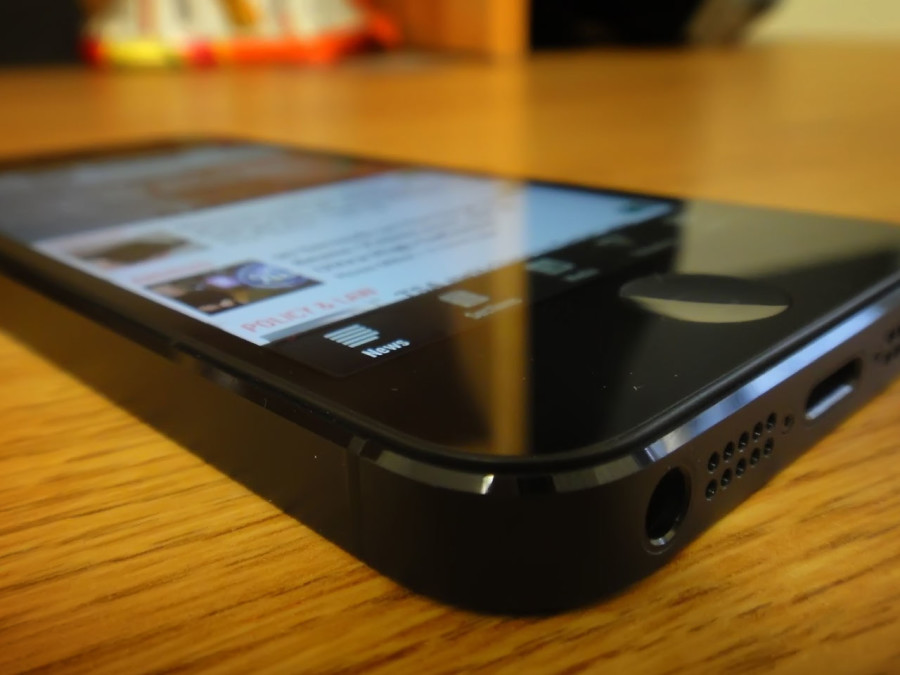



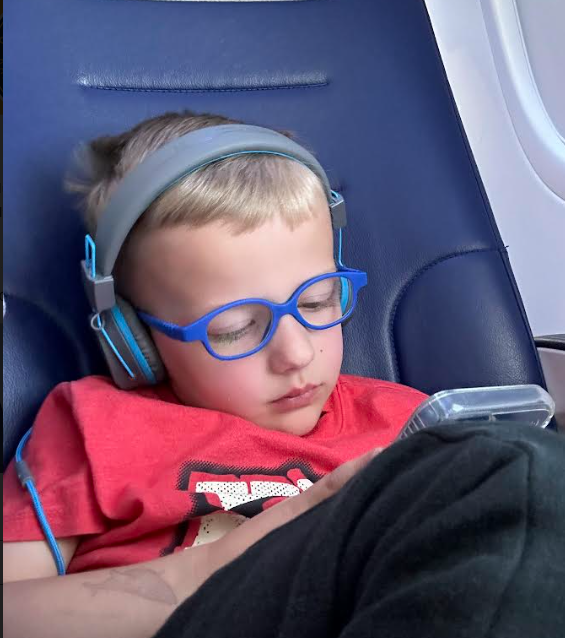



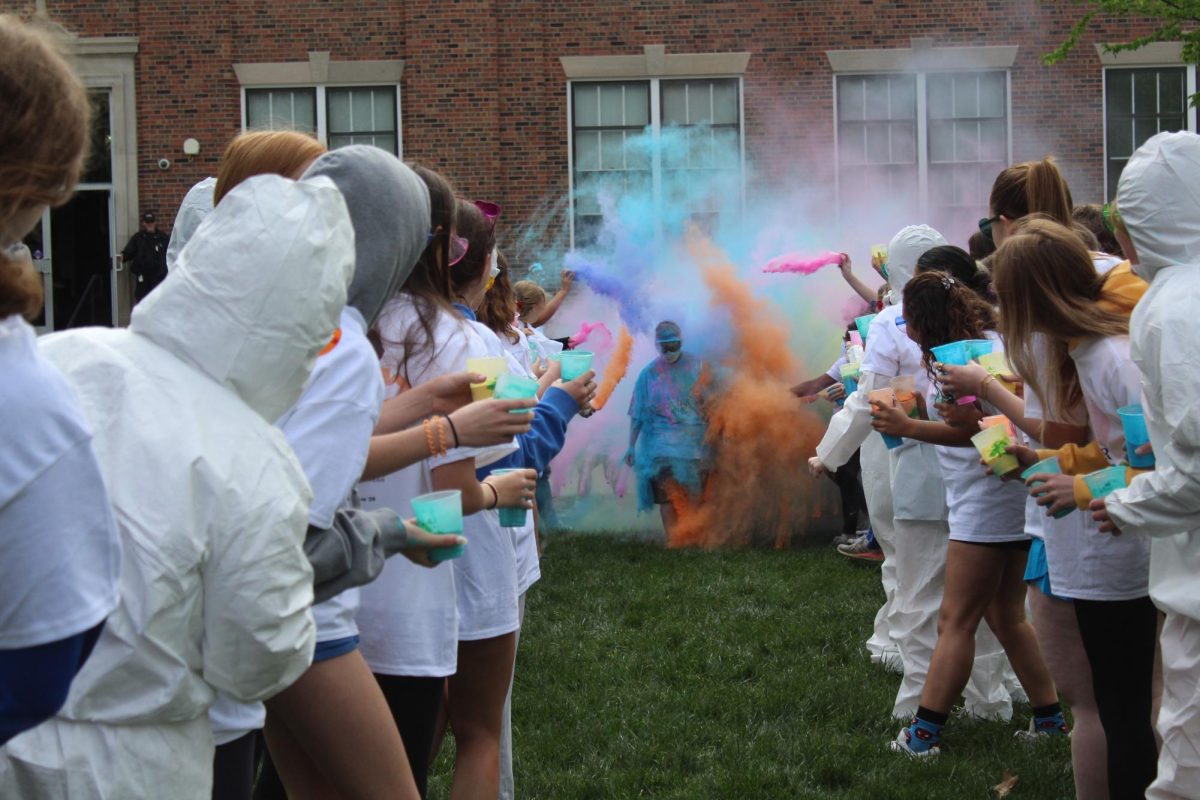


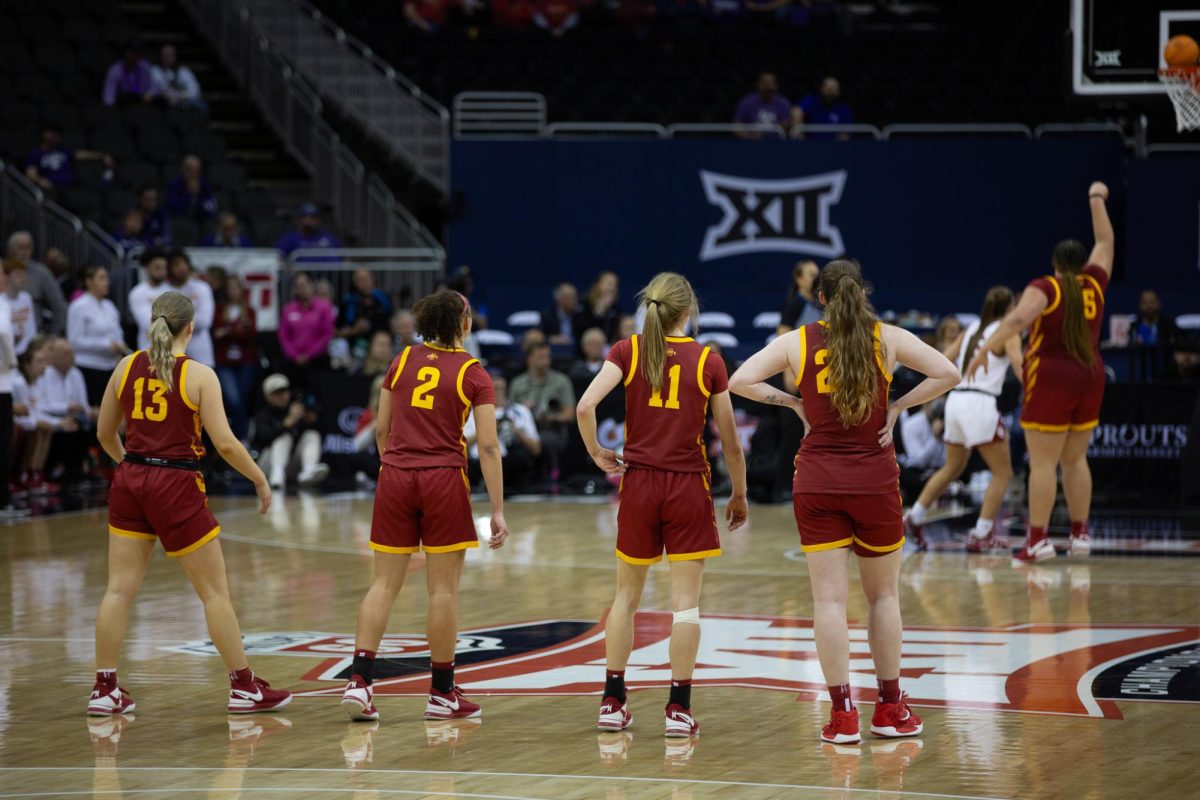
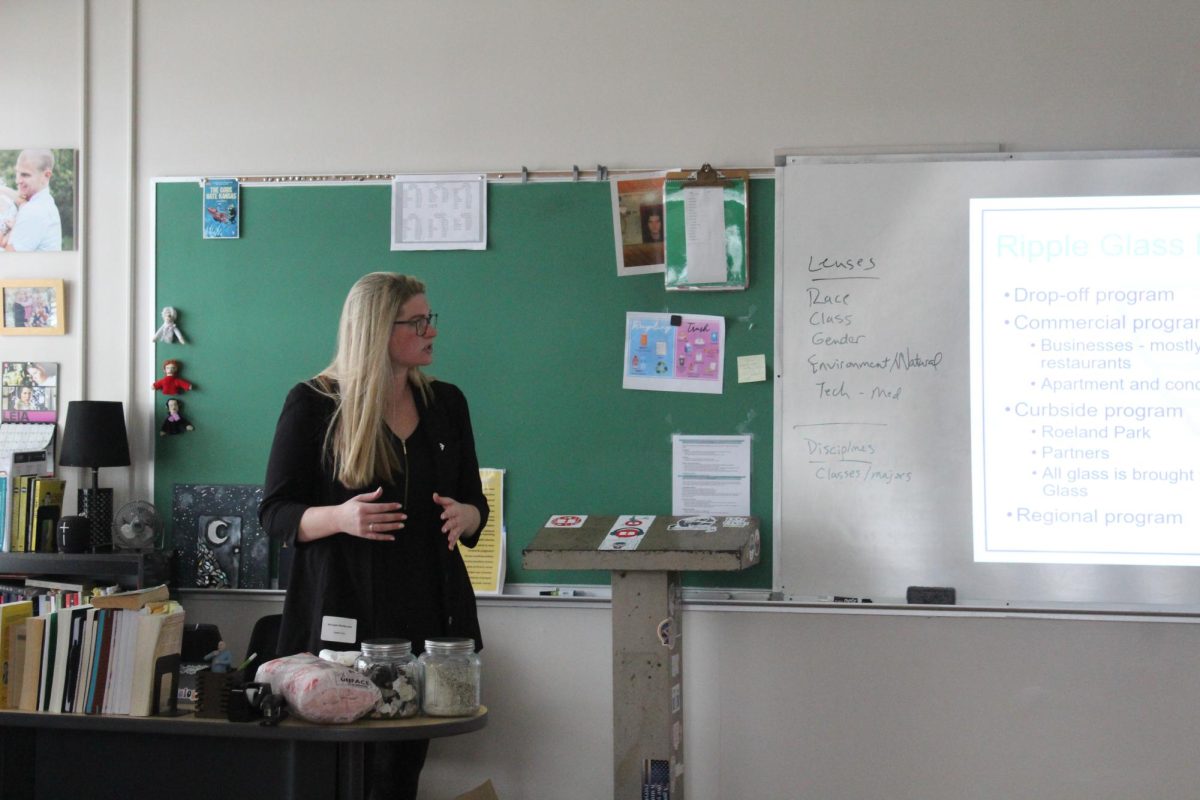
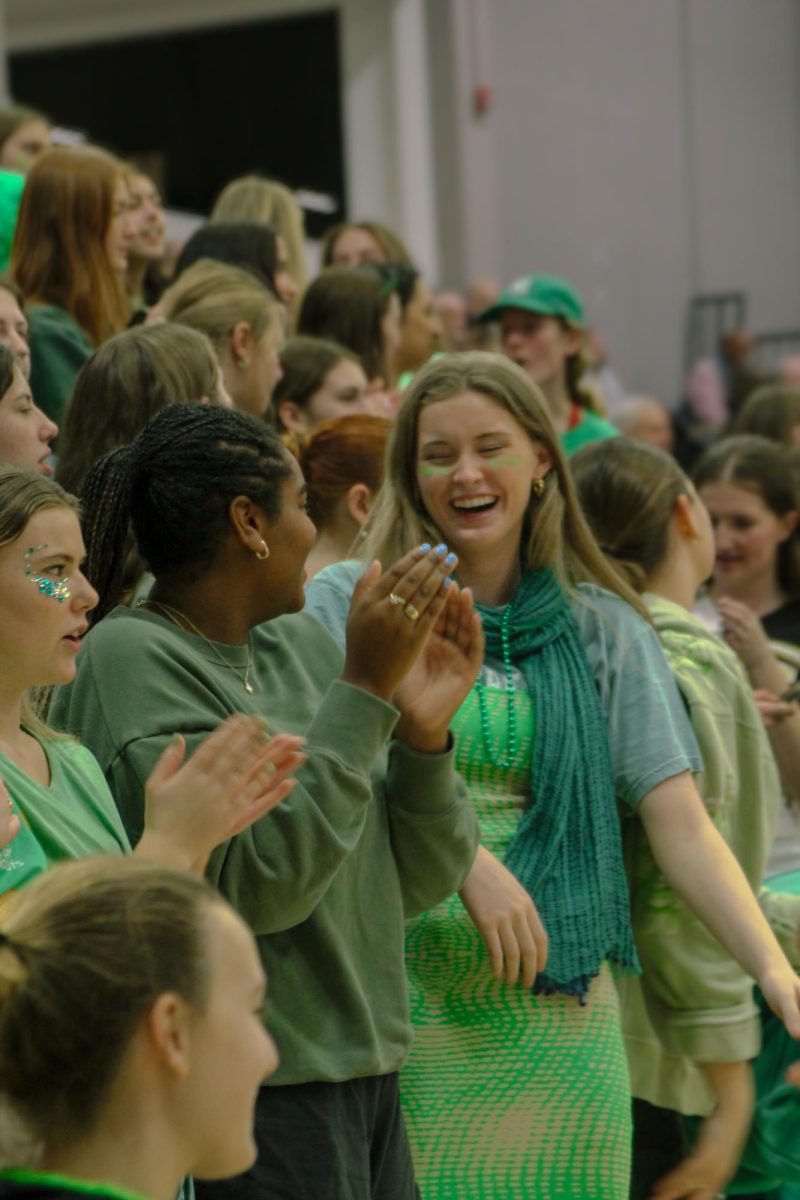
anonymous • Jan 15, 2014 at 6:55 pm
I always get a kick out of these sorts of experiements. I’m not allowed to use my phone at work and (not joking) I work a week at a time sometimes. I even had to give up my pohone while Iwas in other countries because my parents and I decided I shouldn’t need it outside of about 100 text messages- I used 3 when all my money was stolen. I have a nice-ish smart phone, I just don’t use it constantly anymore.
I just really think it’s funny how interconnected we all are without technology when I reflect on it. I mean, yes, sometimes I do miss talking to my British friends without my phone, but I can connect to people around me nonethless. I suppose not using my phone for a week or more at a strech multiple times a year has just desensitized me to “disconnection.” Or maybe it has made me better at compensating through in person connections and other communications.
What I’m trying to say is, it can get less stressful, and I promise it isn’t exactly necessary to always have your phone.
anonymous • Jan 9, 2014 at 10:30 pm
I am a senior and was not and will not be in Mr. Tonnies Theology and Media class. However, when I first hear about this experiment, I kind of was tempted to just go over to his classroom and ask if he would take my phone for two weeks. In fact, I still kind of wish I had done it! I stay connected with twitter, pinterest and facebook, but I definitely could have just done that at home on my computer, and I also recently moved my music to an iPod classic so I wouldn’t have had to worry about that. So..maybe I should revisit the question I posed for myself..it wouldn’t be THAT bad. Would it?